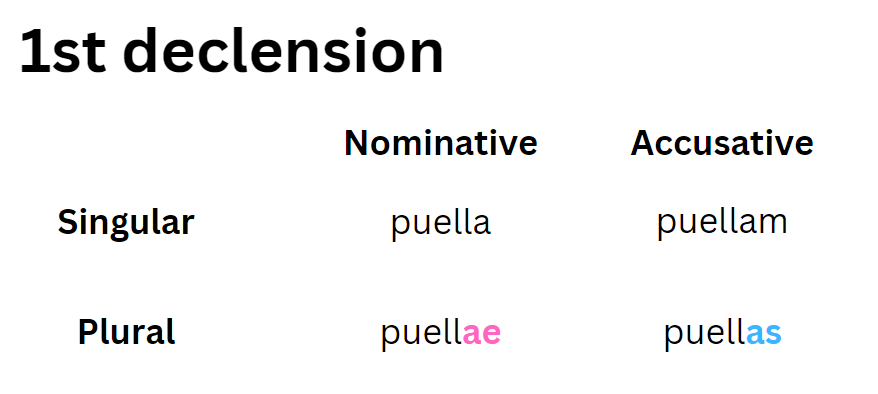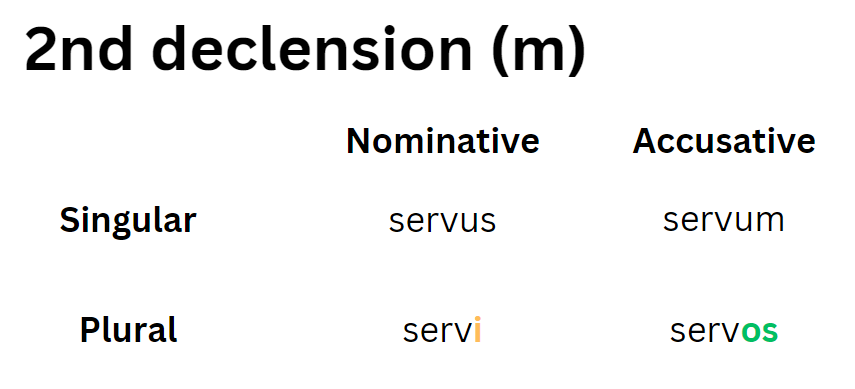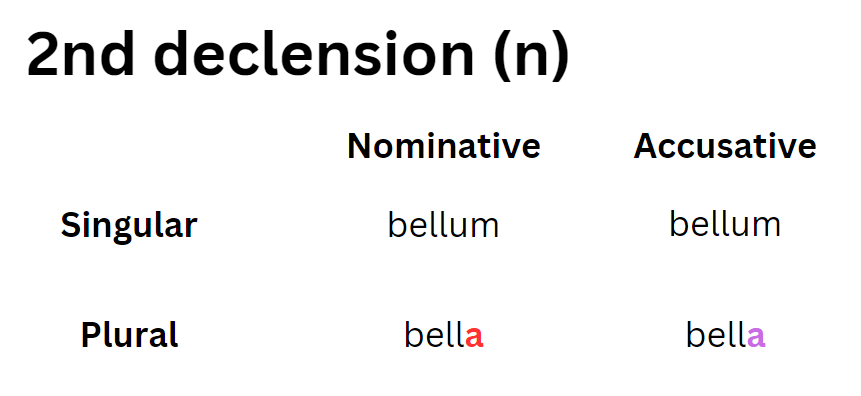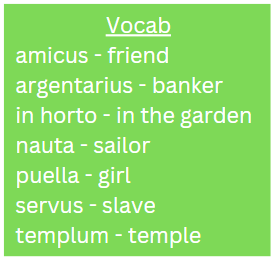Numerous Nouns: Plurals
Easy Latin: Part 8
Today we are looking at plural nouns - how to say more than one of something!
Before we start: have you done your Daily Vocabulary Test? Check how you do with today’s words! Having a solid understanding of Latin vocabulary is crucial for improving your Latin translation skills. We've compiled a list of over 350 different words that are frequently used in Latin translations and catch students out. Come back each day to be tested on a brand new set of words.
Last time on Easy Latin we had a look at second declension neuter nouns. Here’s a quick recap:
bellum terribilis est. The war is terrible. bellum = nominative.
ad bellum eo. I go to war. bellum = accusative.
The second declension neuter is different from the second declension masculine, because these types of nouns look the same in the nominative and the accusative. You therefore have to use context and sense to understand who is doing the action and which of them is receiving the action.
Today we're going to look at something different. Remember that in Latin, the endings are the most important part of words.
First Declension
Compare these two sentences:
puella in foro ambulat. The girl walks in the forum.
puellae in foro ambulant. The girls walk in the forum.
In the first sentence I have puella, “the girl”. In the second sentence I have puellae, “the girls”. They are both nominative, but sentence 1 is singular, sentence 2 is plural.
Let's look at another pair:
puella feminam salutat. The girl greets the woman.
puellae feminas salutant. The girls greet the women.
puella and puellae are both nominative. puella is singular, and puellae is plural.
You can also see feminam, which is accusative singular, and feminas which is accusative plural. These are first declension nouns, and this is the pattern for all nouns that fit this group, like poeta (the poet), nauta (the sailor), villa (the house).
Second Declension
Masculine
Second declension nouns change too, but in different ways. See if you can spot the new endings:
servus amicum videt. The slave sees the friend.
servi amicos vident. The slaves see the friends.
In the second sentence, servi is plural. “The slaves” are nominative. amicos is also plural - “the friends” are in the accusative case.
All second declension masculine nouns change like this. For example argentarius (the banker), dominus (the master), equus (the horse).
Neuter
templum donum habet. The temple holds the gift.
templa dona habent. The temples hold the gifts.
templa and dona are both plural. templa is nominative plural, and dona is accusative plural. There's a great way to fix this in your mind:
“Remember, remember every day, neuter plurals end in -a.”
So if you want to say multiple wars, you use bella, whether they are the subject or the object.
These are second declension neuter nouns. For this one, like for singular neuter nouns, you have to use sense and context to help you figure out which is the subject and which is the object. Gifts can’t hold temples, so it must be the other way around.
Noun tables
Let's have a look at those endings in a more clear way. Feel free to scroll past these to get to the exercises, but come back to them while trying out the translations, just to help you!
Example sentences
There is a vocab list below, and these sentences have singular and plural nouns in nominative and accusative cases. So if you want to have a go on your own use the tables above to help you. Otherwise, scroll on to read the answers and explanations!
amici in horto sedent
nautae argentarios salutant
servus puella vocat
templa video
Walkthrough - read on when ready!
amici in horto sedent.
amici comes from amicus, which from my vocab list I know means “friend”. amici is a nominative plural, so “the friends”, and they're in charge of my sentence.
sedent means “they sit”.
in horto from my vocab list I know means “in the garden”.
The friends sit in the garden.
nautae argentarios salutant.
nautae I can see from my list comes from nauta. nautae is the plural nomintive form, so “the sailors” are in charge.
argentarios I know comes from “banker”, but it is not the nominative singular -us ending. It is the accusative plural -os ending: argentarios.
salutant means they greet.
The sailors greet the bankers.
servus puellas vocat.
servus is nominative singular - “the slave”
puellas is an accusative plural, and it comes from puella “girl”. So they're the object of my sentence.
And vocat means “calls”.
The slave calls the girls.
templa video.
In this case, templa comes from templum, which tells me it's a second declension neuter noun. templa could therefore be nominative or accusative plural.
(Remember, remember every day, neuter plurals end in -a)
So I'm going to have to see what makes most sense.
My verb is video. Now an -O ending on a verb means “I” am doing it. So video means “I see”.
I'm not a temple, so templa cannot be a plural subject. It means it must be an object.
I see the temples.
How did you do? Did you find them okay? Let me know how it went in the comments!
If you want to continue your Latin journey, go and download my free workshop to learn Latin in just one hour. It's got everything you'll need for grammar and vocabulary to start off really strong with your Latin learning. I go through the five biggest mistakes I see people making time and again. Plus, you get all my free guides thrown in as well!
Free 1-on-1 Tutoring Trial
If you need support in your learning, then look no further. Private tutoring sessions are now available through bambasbat!
Find out more here, or sign up for your free trial session below!
Thanks so much for joining me. See you next time on bambasbat.
vale!





